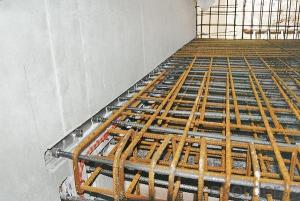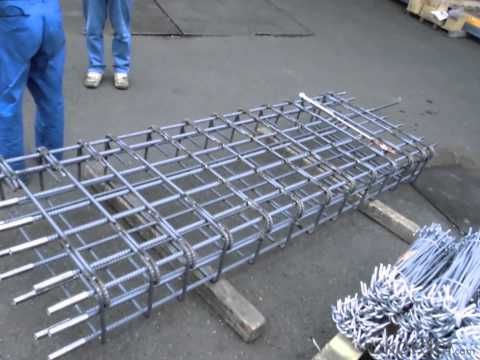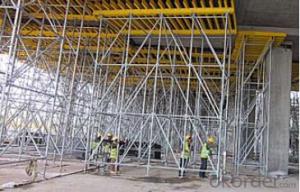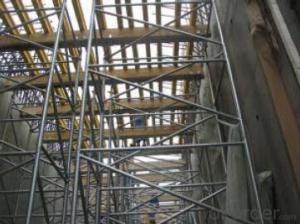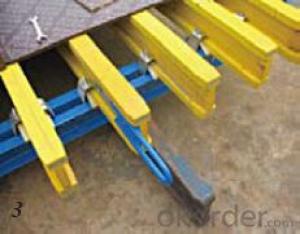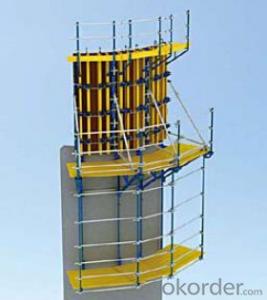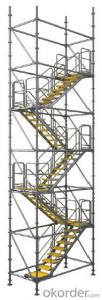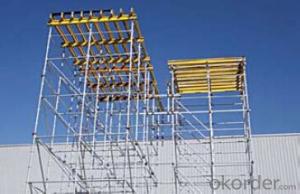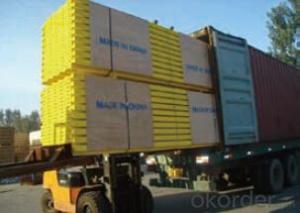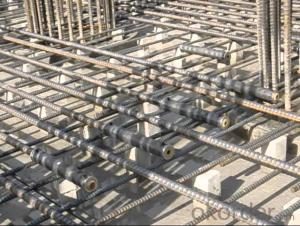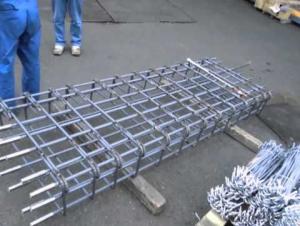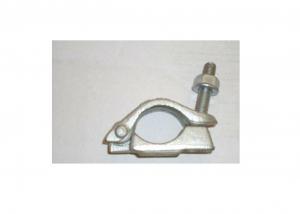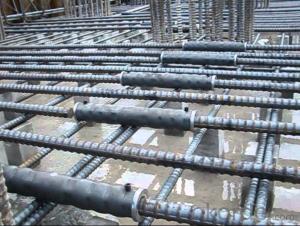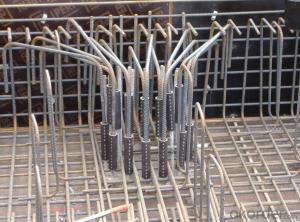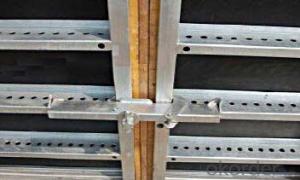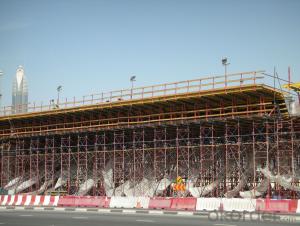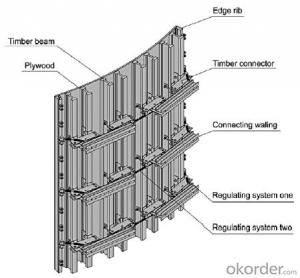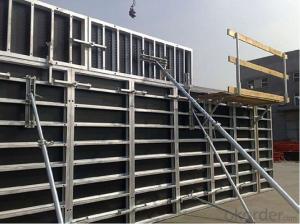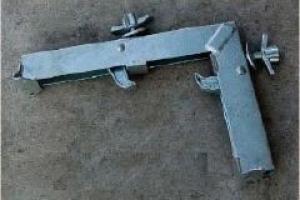Steel Coupler Rebar Pipe Roll For Scaffolding Construction for Wholesales
- Loading Port:
- Shanghai
- Payment Terms:
- TT OR LC
- Min Order Qty:
- 1000 pc
- Supply Capability:
- 10000000 pc/month
OKorder Service Pledge
OKorder Financial Service
You Might Also Like
Steel Coupler Rebar Pipe Roll For Scaffolding Construction for Wholesales
1.Description:
Lapped joints are not always an appropriate means of connecting rebar. The use of Steel Rebar Couplers can simplify the design and construction of reinforced concrete and reduce the amount of reinforcement required.
The threaded steel coupler system is designed as a threaded reinforcement connection with 100% load transmission. The steel coupler rebar connection system is suitable for both static and dynamic load transmission in construction joints.
The coupler is designed as a threaded reinforcement connection for formed construction joints. Reinforcement work is normally carried out on both sides of the construction joint using lap joints or one side is anchored. The bar lengths are based on the structural analysis requirements of the building component and are calculated from anchorage and lap lengths.
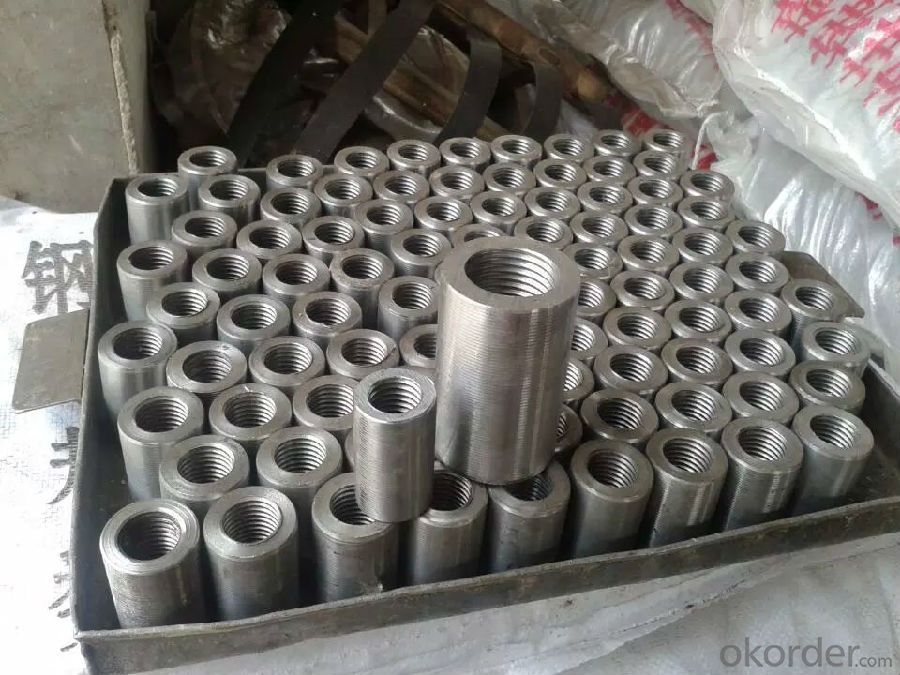
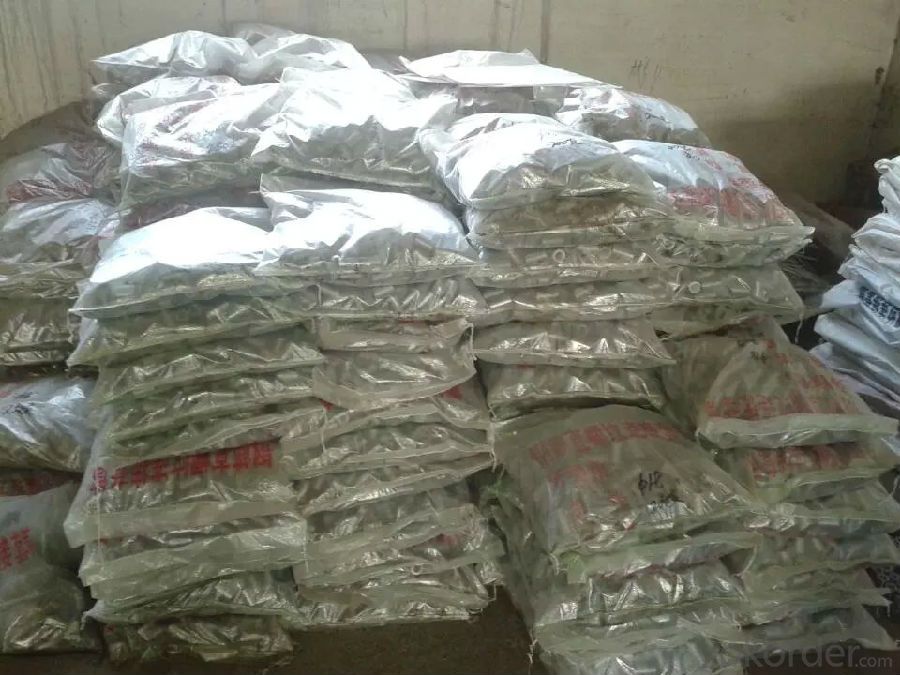
2.Advantages of Steel Coupler Rebar Lift Scaffolding Galvanized Scaffolding Tube with Low Price:
The coupler system provides the opportunity to connect rebars quickly, easily and cost effectively, even when large rebar diameters are used. This makes the steel coupler rebar range a logical extension to our rebendable CNBM reinforcement continuity system for rebars over 12 mm.
3.Available sizes of Steel Coupler Rebar Lift Scaffolding Galvanized Scaffolding Tube with Low Price:
14mm,16mm,18mm,20mm,22mmm,25mm,28mm,32mm,36mm,40mm
4.Delivery:
Delivery Term: FOB / CFR / CIF available.
Delivery Time: 15 days or less after order confirmed.
5.Why choose us?
Technical Expertise
Experienced Management
Stringent Quality Control
Exemplary Service
On-Time Delivery
Wide Product Range
Competitive Pricing
Huge branch network capable of catering worldwide
- Q: What are the different types of form ties used in steel formwork?
- There are several different types of form ties used in steel formwork, each designed to serve a specific purpose and meet specific requirements. 1. Coil Ties: These ties consist of a coil rod with two to four coils, which provide flexibility and allow for easy installation and removal. Coil ties are commonly used in lighter applications where relatively low pressure is expected. 2. Flat Ties: Flat ties are typically made of steel and have flat, wide plates on both ends. They are used to connect opposite wall forms, providing stability and preventing the forms from bulging or spreading due to the pressure of the concrete. 3. She-Bolt Ties: She-bolt ties consist of a threaded rod with a she-bolt attached to one end. These ties are used to secure wall forms together, and the threaded rod allows for easy adjustment of the formwork. 4. Snap Ties: Snap ties are a popular choice for fast and efficient formwork installation. They consist of a metal rod with a button-like head on one end and a wedge on the other. The button head is inserted into the formwork, and the wedge is then driven into the button head using a hammer, creating a strong connection. 5. Cone Ties: Cone ties are similar to snap ties, but they have a cone-shaped head instead of a button head. The cone head is inserted into the formwork, and a metal wedge is driven into the cone, securing the formwork. 6. Waler Ties: Waler ties are used to connect horizontal waler beams with vertical formwork members. They provide additional strength and stability to the formwork system. 7. Loop Ties: Loop ties are made of steel wire and have loops on both ends. They are used to secure wall forms together and can be easily removed once the concrete has cured. 8. Pin and Wedge Ties: Pin and wedge ties consist of a pin and a wedge. The pin is inserted into the formwork, and the wedge is driven into the pin, creating a tight and secure connection. These are just a few examples of the different types of form ties used in steel formwork. The choice of tie will depend on factors such as the type of construction, desired strength, ease of installation, and specific project requirements.
- Q: What are the considerations when designing steel formwork for swimming pools?
- Several important factors must be considered when designing steel formwork for swimming pools. These factors include the structural integrity and strength of the formwork, the accuracy and precision of its dimensions, the ease of assembly and disassembly, and its ability to withstand the corrosive effects of water and pool chemicals. To begin with, the structural integrity and strength of the steel formwork are of utmost importance. It must be capable of supporting the weight and pressure exerted by the concrete during pouring and curing. The design should prevent any potential deformation or buckling that could compromise the pool structure. The thickness and reinforcement of the steel must be calculated meticulously to meet the required load-bearing capacity. The accuracy and precision of the formwork's dimensions are also crucial considerations. The design should ensure precise and consistent dimensions to maintain the pool's shape and size accurately. This is particularly critical for swimming pools, as any deviation from the intended design could lead to uneven water levels or compromised aesthetic appeal. Another consideration is the ease of assembly and disassembly. The formwork should be designed for effortless installation and removal to facilitate efficient construction processes. The components should securely fit together and allow for quick adjustments or modifications if needed. This can help reduce construction time and labor costs. Furthermore, the corrosive effects of water and pool chemicals need to be taken into account. The steel formwork should be treated or coated with materials that can withstand exposure to the water and chemicals commonly found in swimming pools. This will prevent rust and deterioration, ensuring the formwork's longevity and durability. In conclusion, designing steel formwork for swimming pools requires careful consideration of structural integrity, dimensional accuracy, ease of assembly, and resistance to corrosion. By addressing these considerations, the formwork can provide a solid foundation for the construction of a high-quality and long-lasting swimming pool.
- Q: Are there any specific considerations for using steel formwork in earthquake-prone areas?
- In earthquake-prone areas, there are specific factors to consider when using steel formwork. Steel formwork is preferred in seismic regions due to its strength and durability. However, certain aspects need to be taken into account: 1. Flexibility is crucial. Steel formwork must be designed to withstand seismic forces and absorb and dissipate energy during an earthquake to minimize structural damage. 2. Connection details must be carefully engineered to ensure proper load transfer and resistance to seismic forces. Special attention should be given to joints and connections to prevent failure during an earthquake. 3. Additional reinforcement may be necessary to enhance the strength and stiffness of the steel formwork system. This can include extra steel bars, cross bracing, or diagonal struts to resist lateral forces. 4. Proper anchorage of the steel formwork is vital in earthquake-prone areas. It should be securely anchored to the foundation or structural elements to prevent displacement or movement during an earthquake. 5. Regular inspection and maintenance of the steel formwork system are essential in earthquake-prone areas. Any damage or wear should be promptly identified and repaired to maintain the system's integrity and stability. 6. Compliance with local building codes and regulations for seismic design is crucial. These codes provide guidelines and requirements for the design, installation, and use of formwork in earthquake-prone areas. By considering these specific factors, the use of steel formwork in earthquake-prone areas can enhance structural resilience and contribute to the overall safety and durability of construction projects.
- Q: Can steel formwork be used in areas with limited construction access roads?
- Yes, steel formwork can be used in areas with limited construction access roads. Steel formwork is known for its strength and durability, making it suitable for various construction sites, including those with limited access. Unlike other formwork materials, such as timber or aluminum, steel formwork can withstand harsh conditions and heavy loads, making it an ideal choice for challenging construction projects. Additionally, steel formwork can be easily transported and assembled on-site, allowing construction teams to overcome access road limitations and work efficiently in remote or difficult-to-reach areas. Therefore, steel formwork is a viable option for construction projects in areas with limited construction access roads.
- Q: Can steel formwork be used for suspended slabs?
- Indeed, suspended slabs can utilize steel formwork. This adaptable and resilient material proves instrumental in furnishing the required support and structure for such slabs. Notably, steel formwork boasts attributes such as longevity, reusability, and design flexibility, rendering it a desirable choice. Its effortless assembly and disassembly further make it an ideal option for suspended slab construction, where formwork relocation or adjustment is necessary. Moreover, steel formwork yields a sleek and refined surface for the slab, thus minimizing the necessity for supplementary finishing tasks.
- Q: Can steel formwork be used in renovation and refurbishment projects?
- Yes, steel formwork can be used in renovation and refurbishment projects. Steel formwork is a versatile and durable option that can be used for various construction purposes, including renovation and refurbishment projects. Its strength and stability make it suitable for both small-scale and large-scale projects. One of the main advantages of using steel formwork in renovation and refurbishment projects is its reusability. Steel formwork can be easily dismantled and reassembled, allowing it to be used multiple times. This makes it a cost-effective choice, as it reduces the need for constant replacement or repair of formwork materials. Moreover, steel formwork provides a high level of precision and accuracy, ensuring that the desired shape and dimensions are achieved during the renovation or refurbishment process. This is particularly important when working on intricate designs or when preserving historical structures. Steel formwork also offers excellent load-bearing capacity, which is necessary in renovation projects where existing structures need to be reinforced or altered. It can withstand the pressure exerted by concrete pouring, ensuring the stability and safety of the overall construction. In addition, steel formwork is resistant to environmental factors such as moisture and extreme temperatures, making it suitable for both indoor and outdoor renovation and refurbishment projects. It can withstand the wear and tear associated with construction activities, ensuring its longevity and reliability. Overall, steel formwork is a reliable and efficient choice for renovation and refurbishment projects. Its versatility, reusability, precision, load-bearing capacity, and resistance to environmental factors make it a preferred option for contractors and builders in these types of construction works.
- Q: Can steel formwork be used for soundproofing walls?
- Steel formwork is primarily used for creating the structure and shape of concrete walls during construction. While steel formwork is sturdy and durable, it is not specifically designed for soundproofing purposes. Soundproofing walls typically require materials with high acoustic performance and insulation properties to effectively block or absorb sound waves. While steel formwork may offer some level of sound reduction due to its density, it is not sufficient for achieving significant soundproofing results. To effectively soundproof walls, it is recommended to use specialized materials such as acoustic insulation, mass-loaded vinyl, or soundproof drywall, which are designed specifically for this purpose.
- Q: Can steel formwork be used in cultural or entertainment facility construction projects?
- Yes, steel formwork can be used in cultural or entertainment facility construction projects. Steel formwork offers several advantages such as durability, strength, and versatility, making it suitable for various construction projects including those in the cultural and entertainment sectors. It provides efficient and cost-effective solutions for creating complex structures and intricate designs required in these types of facilities.
- Q: What are the different types of edge protection used with steel formwork?
- To ensure safety and prevent accidents on construction sites, various types of edge protection are utilized with steel formwork. Here are some commonly used options: 1. Edge protection barriers: These sturdy barriers, typically constructed from materials like steel or aluminum, are installed along the formwork's edges. Their purpose is to physically obstruct workers from unintentionally falling off. These barriers are adjustable, making them easy to install and remove as needed. 2. Toe boards: Usually made of wood or steel, toe boards are positioned along the lower edge of the formwork. Their role is to act as a barrier, preventing tools, equipment, or debris from falling off. Additionally, they serve as a visual reminder for workers to exercise caution near the edge. 3. Handrails: Attached to vertical posts, handrails are horizontal bars placed along the formwork's edges. They offer workers a secure grip, aiding in balance and stability, especially when working at elevated heights. Safety regulations often mandate the installation of handrails in specific situations. 4. Safety nets: These nets are positioned beneath the formwork to catch any falling objects or debris. Typically crafted from robust mesh material, safety nets are designed to absorb the impact of such items. They prove especially beneficial during activities where there is a risk of objects falling off, such as concrete pouring or formwork removal. 5. Harnesses and lifelines: In high-risk scenarios, workers may be required to wear harnesses and employ lifelines to safeguard against falls. These systems consist of a harness worn by the worker, which is connected to a securely anchored lifeline. Harnesses and lifelines provide an additional layer of protection when edge protection alone may not suffice. It is important to consider project-specific requirements, local regulations, and the level of risk involved when selecting edge protection measures. Construction companies must thoroughly assess site conditions and implement appropriate measures to ensure worker safety.
- Q: Are there any specific design considerations for steel formwork construction?
- Yes, there are several specific design considerations for steel formwork construction. Firstly, the formwork should be designed to withstand the weight of the concrete and the pressure exerted during pouring. It should be structurally strong and rigid to prevent any deformation or collapse. Additionally, the formwork design should allow for easy installation, dismantling, and reusability, as steel formwork is often used in repetitive construction projects. Special attention should be given to the joints and connections to ensure stability and prevent leakage. Finally, proper surface finish and alignment should be considered to achieve the desired concrete finish.
Send your message to us
Steel Coupler Rebar Pipe Roll For Scaffolding Construction for Wholesales
- Loading Port:
- Shanghai
- Payment Terms:
- TT OR LC
- Min Order Qty:
- 1000 pc
- Supply Capability:
- 10000000 pc/month
OKorder Service Pledge
OKorder Financial Service
Similar products
Hot products
Hot Searches
Related keywords
